There are many consumers that talk about not wanting to pay points, but many of them are not sure what “points” really are. When something sounds bad, nobody wants it and that includes paying for something that they aren’t aware of or that costs more money than they thought. It’s important to understand the different types of points, and how they are factored into your loan so that you know exactly what you are paying for. There are two different types of points when it comes to your mortgage loan and understanding how they are different and how they can impact your tax deductions is important.
What is a Point?
A point actually means 1% of the loan amount, so if your mortgage loan is for $175,000 then 1% of that loan amount is $1,750, and 2% would be $3500. A lender may charge anywhere from 1 to 2 points, and if you see this on the Good Faith Estimate it’s important to ask upfront why it’s there, and how this will affect the cost of your loan. There are two names for points that could be included in your mortgage loan; discount points and origination points.
What Are Discount Points?
Discount points are a term used by the lender to describe what you might pay in order to reduce the interest rate on your new loan. What appears in the discount block of the Good Faith Estimate is also considered prepaid interest, because it’s paid in the closing of the loan. Borrowers can pay no points if they wish, or they can pay as many as four to get the interest rate lowered. The good news is that these discount points paid may be tax deductible. As always, it’s best to speak with your tax professional about this.
What Are Origination Points?
The term origination points, is also known as origination fees, and is the fee the lender charges for doing the loan. In some cases, the origination fee may be tax deductible if it was not used to pay other fees that are typically included in a mortgage loan. The IRS states that any fees must be itemized, but as always consult a tax professional on this as well if there is any question.
When buying a home, it is up to you to decide whether or not you have enough money to put down, or if paying points is a better option. With the right mortgage professional this should be an easy question to answer. Those who are looking to put down the lowest amount of money possible should consider not paying points at all. It typically takes a borrower around five years to recoup the money that they pay on the points, but it depends on the loan amount and how long that borrower wishes to keep the home. When someone decides they will be in the home for five years or more, that is pretty significant, and paying the points would in this case save the borrower money.
